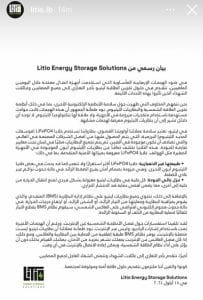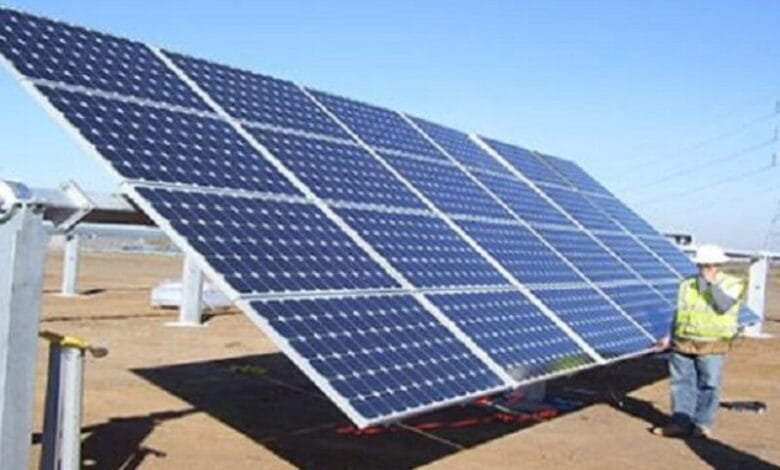في الآونة الأخيرة، شهد لبنان سلسلة من التفجيرات استهدفت أجهزة الاتصال اللاسلكية وأجهزة “البيجر”، مما أثار حالة من القلق والخوف بين المواطنين. وسط هذه الاضطرابات، ظهرت شائعات عن أن أنظمة الطاقة الشمسية التي يعتمد عليها الكثير من اللبنانيين لتأمين الكهرباء في ظل الانقطاعات المتكررة، قد تكون عرضة للتفجير عبر هجمات إلكترونية أو سيبرانية. وقد تساءل الكثيرون: هل يمكن أن تتحول أنظمة الطاقة الشمسية فعلاً إلى “قنابل موقوتة” داخل بيوت اللبنانيين؟
حقيقة تفجيرات الأجهزة اللاسلكية
تشير التقارير الأولية إلى أن الأجهزة اللاسلكية التي انفجرت كانت مفخخة مسبقاً، وأن بطاريات الليثيوم الموجودة داخل الأجهزة لا علاقة لها بالتفجيرات. المهندس البيئي والصناعي المختص بأنظمة الطاقة المتجددة زياد أبي شاكر، قال في حديثه إلى صحيفة “النهار” إن التقارير العسكرية والاستخباراتية في الأوساط الأجنبية، أكدت أن بطارية الليثيوم لا تسبب الأضرار التي نجمت عن هذه الانفجارات، وأن الأجهزة تم تفخيخها وتفجيرها عن بعد. واعتبر أبي شاكر أن هذه الحوادث غير مسبوقة عالميًا من حيث الأسلوب والطريقة.
وأضاف أن الأخبار التي انتشرت بين اللبنانيين عن انفجار بطاريات الليثيوم في بعض أنظمة الطاقة الشمسية في لبنان هي أخبار كاذبة.
وكانت قد انتشرت شائعات عن أن بطاريات الليثيوم هي المسببة للانفجارات وأن البطاريات المستخدمة في أنظمة الطاقة الشمسية، بعضها انفجر، وبرزت دعوات إلى الابتعاد عن بطاريات الطاقة الشمسية خوفاً من انفجارها، مما أدى إلى حالة هلع لدى اللبنانيين الذين يعتمدون على هذه الأنظمة.
لكن المهندس الكهربائي مصطفى حيدر المتخصص في مجال الطاقة الشمسية، تحدث عن احتمال انفجار بطاريات الليثيوم، وأوضح أنه “بحسب تقارير الشركات المصنعة، فإن احتمال انفجارها هو صفر في المئة، لأن هذا النوع من البطاريات مصمم بنظام حماية ذاتي (Self-protection) ومن المستحيل تعرضها للانفجار”. وتابع حيدر أن أسوأ ما يمكن أن يحدث للبطارية هو تعطلها أو انتفاخها في حال تعرضها لشحن زائد بشكل كبير، لا للانفجار، بسبب أنظمة الحماية المتقدمة.
نظام الحماية في أنظمة الطاقة الشمسية
أشار أبي شاكر إلى أن تعطل بطاريات الليثيوم قد يحدث إذا تعرضت البطارية لشحنات كهربائية تتجاوز قدرتها على التحمل بثلاث إلى أربع مرات تبعا لوزنها. وأوضح أن البطارية تأخذ الكهرباء من الألواح الشمسية عبر “الإنفرتر”. ونادراً ما تعطي الألواح الشمسية طاقة أكبر من قدرة البطارية على التحمل. وأضاف أن هذه الحوادث من شبه المستحيل أن تحدث حتى في الظروف الجوية الصعبة. وأكد أن “الإنفرتر” هو الذي يتلقى الصدمات الكهربائية العالية في حال حدوثها ويتعطل، مما يحمي البطاريات من التلف.
تقنياً، قد تكون أنظمة الطاقة الشمسية عرضة للهجمات الإلكترونية إذا كانت متصلة بالإنترنت، بما في ذلك وحدات التحكم في الشحن والكونترول التي تدير تدفق الطاقة بين الألواح الشمسية والبطاريات. إذا تمكن المهاجمون من اختراق هذه الوحدات، فيمكنهم التلاعب بعملية الشحن أو التفريغ، مما قد يؤدي إلى خلل في النظام وتعطيل البطاريات. ومع ذلك، فإن معظم أنظمة الطاقة الشمسية في لبنان غير متصلة بشبكة الإنترنت، كما أكد أبي شاكر وحيدر.
أما إذا كان المستخدمون يعتمدون على أنظمة طاقة شمسية متصلة بالإنترنت، فإن الأفضل بحسب حيدر هو فصلها عن الشبكة سواء كانت متصلة عبر الكابل أو شبكة الواي فاي.
وشدد الخبراء على ضرورة عدم الانسياق وراء الشائعات والمبالغات التي تنتشر من دون تدقيق. ودعوا اللبنانيين إلى التحقق من صحة المعلومات قبل تداولها، لتجنب إثارة الفزع غير المبرر بين الناس. وأكدوا أن أنظمة الطاقة الشمسية، رغم التحديات النظرية، تبقى خياراً آمناً وضرورياً لتأمين الطاقة في ظل الأزمة المستمرة في قطاع الكهرباء.
إذا، أنظمة الطاقة الشمسية في لبنان ليست “قنابل موقوتة” كما يُشاع.

المصدر: النهار
### Are Solar Energy Systems Really Time Bombs?
Recently, Lebanon has experienced a series of explosions targeting wireless communication devices and pagers, raising significant concerns among the public. Amidst this turmoil, rumors have emerged suggesting that solar energy systems, increasingly relied upon by many Lebanese to secure electricity amid frequent outages, might be susceptible to cyberattacks or explosions. This has led many to wonder: Could solar energy systems actually become “time bombs” in Lebanese households?
#### Understanding the Explosions of Wireless Devices
Initial reports indicate that the wireless devices that exploded were pre-rigged with explosives, with lithium batteries found in these devices not being the cause of the detonations. Environmental and industrial engineer Ziad Abi Shaqar stated in an interview with “An-Nahar” newspaper that military and intelligence reports have confirmed that lithium batteries do not cause the type of damage seen in these explosions. He emphasized that the devices were rigged to explode remotely, calling these incidents unprecedented in global context.
Despite rumors circulating among Lebanese about lithium batteries being responsible for recent explosions—leading to widespread panic and calls to avoid solar battery systems—engineer Mustafa Haidar, a specialist in solar energy, clarified that the likelihood of lithium battery explosions is virtually zero. He explained that these batteries are designed with self-protection systems, making them resistant to explosion. The worst-case scenario for a lithium battery is malfunctioning or swelling if it undergoes severe overcharging, not exploding due to advanced protective systems.
#### Protection Mechanisms in Solar Energy Systems
Abi Shaqar noted that lithium battery malfunctions could occur only if they are subjected to electrical charges exceeding their capacity by three to four times, depending on their weight. He explained that batteries receive power from solar panels through an inverter, and it is rare for solar panels to generate energy beyond the battery's tolerance. He stressed that even in challenging weather conditions, such incidents are nearly impossible. The inverter absorbs any high electrical shocks, thereby protecting the batteries from damage.
From a technical standpoint, solar energy systems could be vulnerable to cyberattacks if they are connected to the internet, particularly control units that manage energy flow between solar panels and batteries. If attackers can breach these units, they may manipulate the charging or discharging process, potentially causing system malfunctions and battery failure. However, Abi Shaqar and Haidar affirmed that most solar energy systems in Lebanon are not connected to the internet.
For those utilizing internet-connected solar systems, Haidar recommended disconnecting them from the network, whether through cables or Wi-Fi.
Experts urged the public not to be swayed by unverified rumors and exaggerations that circulate without proper fact-checking. They encouraged Lebanese citizens to verify information before sharing it, in order to avoid unwarranted panic. They affirmed that despite theoretical challenges, solar energy systems remain a safe and essential option for securing energy in light of the ongoing electricity crisis.
In conclusion, solar energy systems in Lebanon are not “time bombs” as rumored.
translated by economyscopes team
 سكوبات عالمية إقتصادية – EconomyScopes إجعل موقعنا خيارك ومصدرك الأنسب للأخبار الإقتصادية المحلية والعربية والعالمية على أنواعها بالإضافة الى نشر مجموعة لا بأس بها من فرص العمل في لبنان والشرق الأوسط والعالم
سكوبات عالمية إقتصادية – EconomyScopes إجعل موقعنا خيارك ومصدرك الأنسب للأخبار الإقتصادية المحلية والعربية والعالمية على أنواعها بالإضافة الى نشر مجموعة لا بأس بها من فرص العمل في لبنان والشرق الأوسط والعالم




